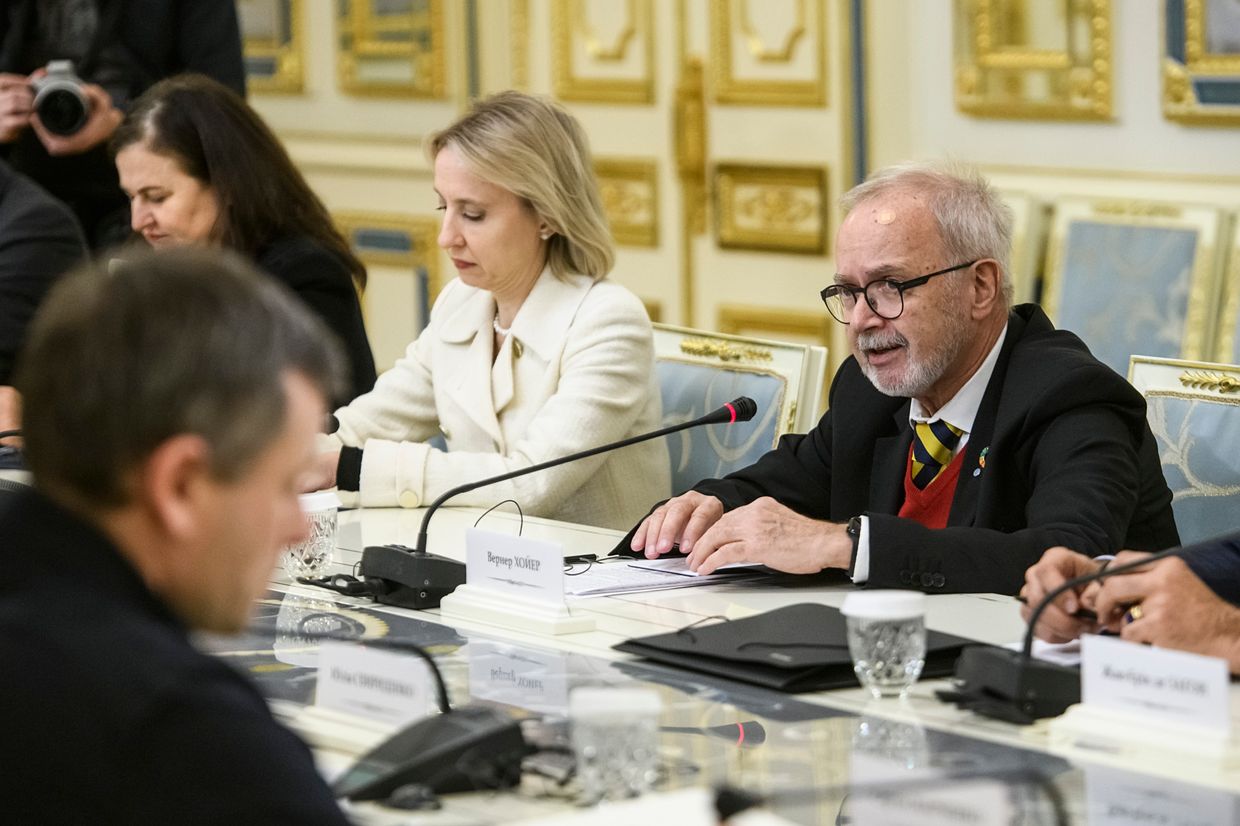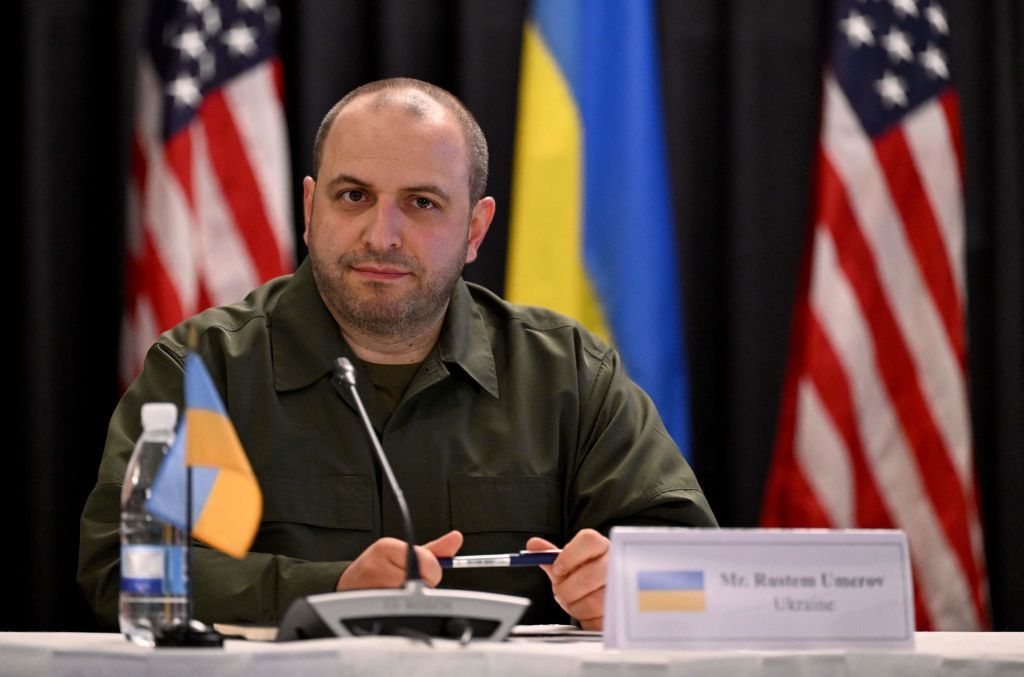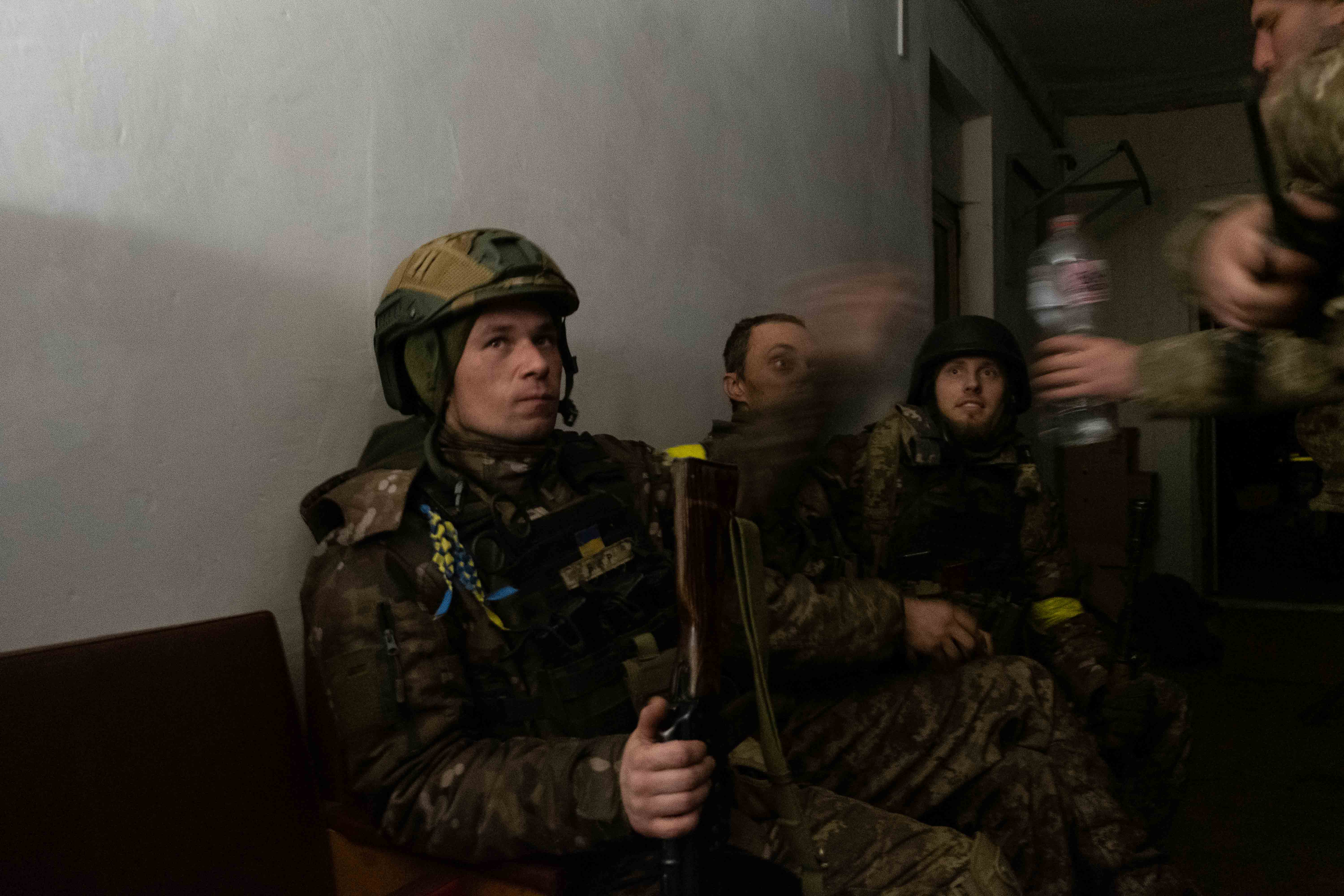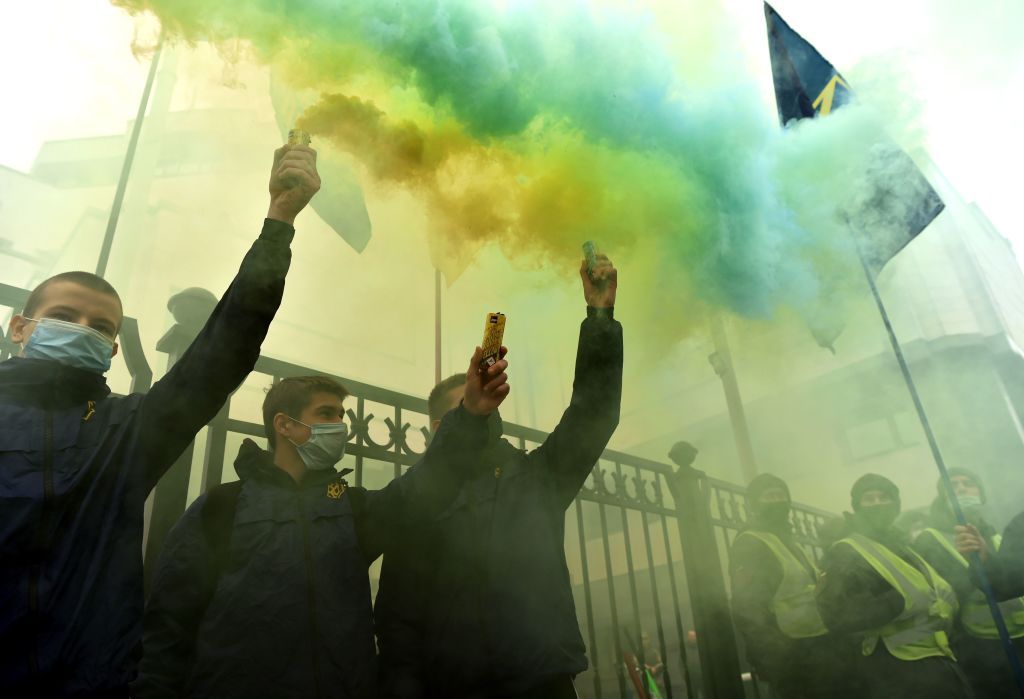Ukraine war latest: Military intelligence says Budanov's wife poisoned

Key developments on Nov. 28:
- Military intelligence: Budanov's wife poisoned
- EU Council approves further funding for training of Ukrainian soldiers
- Ukraine, Italy start talks on security guarantees
- Kuleba to boycott OSCE meeting over Russian delegation's presence
- Parliament chairman: Ukraine to open office in European Parliament
Marianna Budanova, the wife of Ukraine's Military Intelligence Chief Kyrylo Budanov, was poisoned, a representative of the military intelligence agency (HUR), not allowed to go public at the time, told the Kyiv Independent on Nov. 28.
Military intelligence spokesperson Andrii Yusov later officially confirmed that Budanova was poisoned by heavy metals and is undergoing treatment in a comment for Radio Free Europe/Europe Liberty later that day.
Ukrainska Pravda reported, citing security service sources, that Budanova "is doing better now as she has undergone the first stage of treatment."
The media refer to Marianna Budanova as a psychologist, volunteer, and public figure.
She unsuccessfully ran for the Kyiv City Council as a candidate of Kyiv Mayor Vitali Klitschko's UDAR party in 2020. She has then worked as Klitschko's advisor on combating corruption in youth politics and sports.
Budanov said in an August interview for Radio Free Europe/Radio Liberty that his wife Marianna lives with him in his office and that the couple are constantly together for security reasons.
Yusov previously said that Russia had made more than 10 attempts on Kyrylo Budanov's life.
The military intelligence agency is directly subordinate to the country's defense ministry. The agency describes its chief tasks as gathering intelligence, identifying external threats to Ukraine, and combatting terrorism and foreign intelligence activities.
While much of its activities remain classified, the military intelligence confirmed responsibility for several attacks against the Russian rear during the full-scale war.
read also
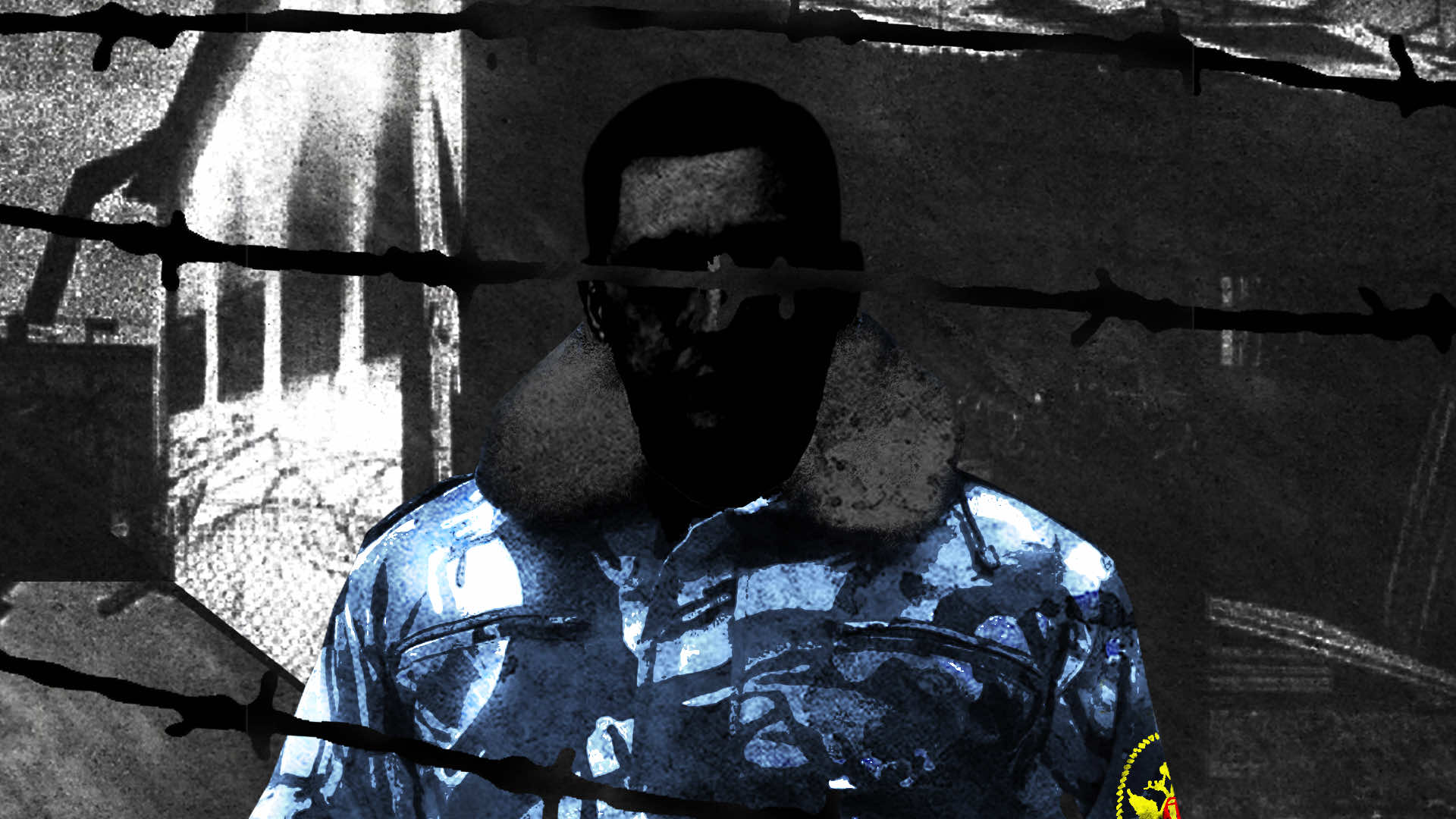
EU Council approves further funding for training of Ukrainian soldiers
The Council of the European Union approved on Nov. 28 an additional 194 million euros ($213 million) for its training mission for Ukrainian soldiers, bringing the total funding to around $280 million.
The funds will be provided through the European Peace Facility and "take the form of necessary lethal and non-lethal equipment and supplies, as well as services to back the training activities," the council's press service wrote.
"The objective of today's decision is to continue supporting the capacity building of the Ukrainian Armed Forces, based on Ukrainian needs and taking into account the increasing scope and complexity of the training curriculum," reads the announcement.
"This support will continue facilitating large-scale training of Ukrainian Armed Forces personnel and enable EU member states to provide required training equipment and supplies."
The European Union Military Assistance Mission in support of Ukraine (EUMAM Ukraine) was established in October last year to provide individual, collective, and specialized training for the Ukrainian military.
Over 34,000 Ukrainian soldiers have been trained under this mission since Oct. 17, 2022.
Ukraine, Italy start talks on security guarantees
Ukraine and Italy began negotiations on a bilateral agreement on security guarantees under the Group of Seven (G7) Joint Declaration of Support for Ukraine, the Presidential Office reported on Nov. 28.
Italy has become the last G7 country to start the bilateral security guarantees discussion with Ukraine. The G7 also includes Germany, the U.K., the U.S., Japan, France and Canada.
"We appreciate the significant contribution of our Italian friends to the defense of Ukraine and to bringing a joint victory closer,” said Ihor Zhovkva, the President's Office deputy head leading the Ukrainian negotiation team.
“Italy's provision of security guarantees to Ukraine will be an important step towards our country's membership in the European Union and NATO."
The Group of Seven (G7) members presented their long-term security commitments for Ukraine at the NATO summit in Vilnius in early July.
Under this plan, individual countries would provide bilateral support to help Kyiv repel the ongoing Russian invasion and deter any future aggression.
The security guarantees would entail explicit and long-lasting obligations, as well as bolster Ukraine's ability to resist Russian aggression. The guarantees would also cover sanctions, financial aid, and post-war reconstruction.
Around 30 countries have so far joined the security guarantees declaration.
Ukraine has said that the best security guarantee for it would be to become a full-fledged NATO member after Russia's war ends.
Kuleba to boycott OSCE meeting over Russian delegation's presence
The Ukrainian delegation will not attend the upcoming Organization for Security and Co-operation in Europe (OSCE) meeting of foreign ministers due to the presence of Russian representatives, Ukraine's Foreign Ministry spokesperson Oleh Nikolenko said on Nov. 28.
The meeting is scheduled to take place from Nov. 30 until Dec. 1 in Skopje, the capital of North Macedonia, a country currently chairing the organization.
"Ukraine highly appreciates the efforts of North Macedonia as the presiding state in 2023, and Foreign Minister Bujar Osmani personally," Nikolenko said, highlighting Osmani's "professionalism and unwavering commitment to protecting the principles and obligations of the OSCE."
The spokesperson said that Russia is abusing the OSCE's rule of consensus and resorts to blackmail and open threats to block key issues, such as Estonia's candidacy for the 2024 chairmanship.
The foreign ministers of Estonia, Latvia, and Lithuania also released a joint statement on Nov. 28 saying they will boycott the upcoming Organization for Security and Co-operation (OSCE) meeting due to the planned attendance of a delegation from Russia.
Malta is scheduled to preside over the organization after Russia and Belarus blocked Tallinn's candidacy last week.
Nikolenko also reminded that Russia had been illegally holding three Ukrainian OSCE officials, who were captured shortly after the start of the full-scale invasion.
While refraining from participating in the upcoming meeting, "Ukraine remains committed to the principles of the OSCE," Nikolenko added.
The OSCE was formed in the 1970s as the Conference on Security and Co-operation in Europe, which provided a platform for dialogue between the Eastern Bloc and Western Bloc during the Cold War.
Parliament chairman: Ukraine to open office in European Parliament
Ukraine will open a representative office in the European Parliament to help strengthen cooperation and foster ties, parliamentary chairman Ruslan Stefanchuk said on national television on Nov. 28 as cited by Ukrainska Pravda.
He also added that there were plans to open an office of the European Parliament in Kyiv for the sake of mutual learning.
The proposed move would help increase the compatibility of Ukraine's parliament with European institutions and would allow Ukrainian lawmakers to observe the operations and functions of the European Parliament, Stefanchuk said.
"Compliance with the criteria of democratization and parliamentarism is very important for us, as we are integrating into Europe and want to have full compatibility," Stefanchuk said.
In a press conference on Nov. 28, European Parliament President Roberta Metsola said that she and Stefanchuk had signed a Memorandum of Understanding that outlined steps to take the cooperation of the respective parliaments to the "next level."
It will "bring our parliaments (and) people closer," she added.
The European Commission recommended that Ukraine begin talks regarding accession to the EU on Nov. 8, but a final vote of member states is still required to begin the official process.


